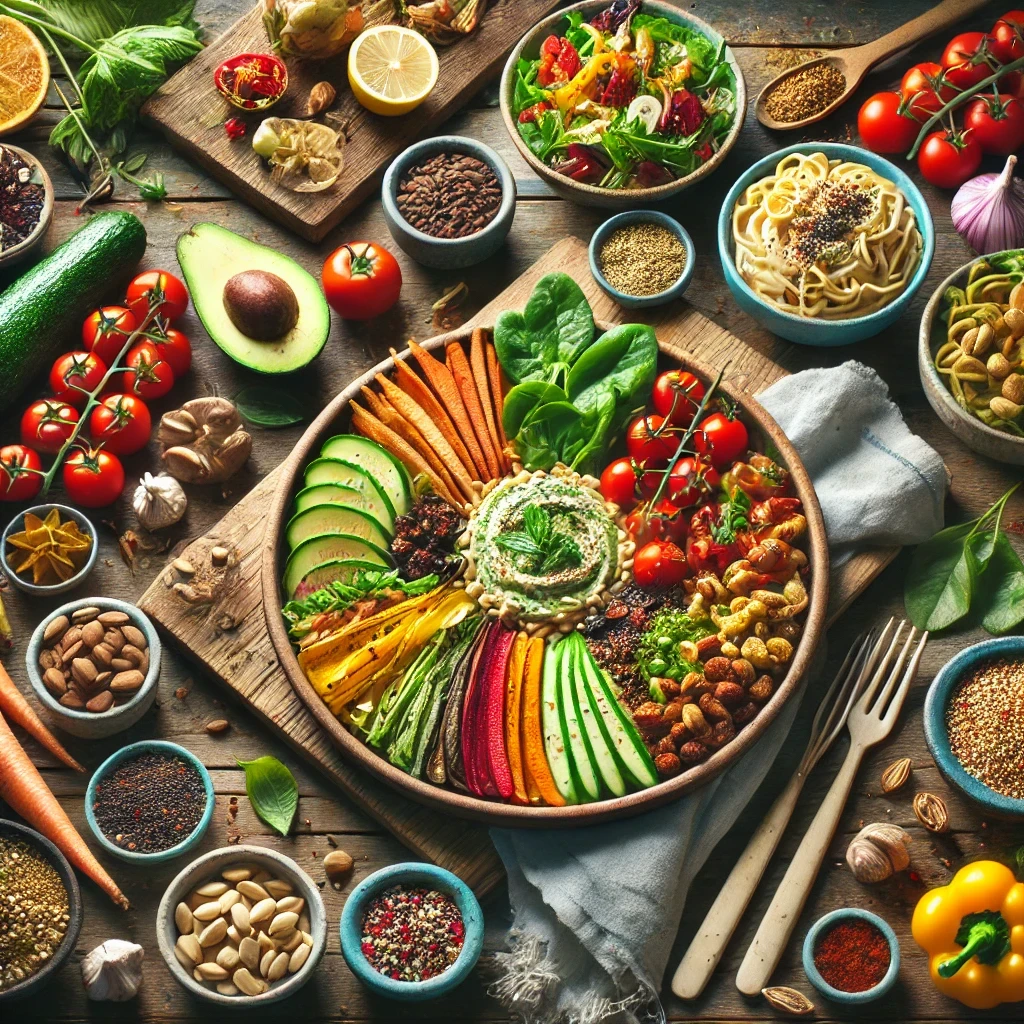Sep 20, 2024
The Art of Meal Planning, Tips for Efficient Cooking
Explore the fascinating world of fermentation. Learn about the science behind.
Introduction:
Meal planning is a powerful tool that can transform your approach to cooking, saving you time, reducing food waste, and helping you make healthier choices. Efficient cooking isn't just about speed—it's about being strategic, organized, and intentional with your meals.Whether you're a busy professional, a parent juggling multiple responsibilities, or someone looking to simplify their culinary routine, mastering meal planning can make a significant difference. This comprehensive guide will walk you through essential meal planning strategies, time-saving cooking techniques, and tips for making your kitchen work smarter, not harder.Let’s dive into the art of meal planning and discover how efficient cooking can help you enjoy delicious, home-cooked meals without the stress.
Understanding the Basics of Meal Planning:
Meal planning involves deciding what you’ll eat ahead of time and organizing your grocery shopping and prep accordingly.
Why Meal Planning Matters: It reduces last-minute cooking stress, helps you stick to a healthy diet, and saves money.
Set Your Meal Planning Goals: Are you meal prepping for weight management, a busy schedule, or simply to reduce takeout reliance? Define your objectives.
Create a Weekly Meal Calendar: Plan breakfast, lunch, and dinner for each day, considering your schedule and preferences.
Choose Recipes Wisely: Opt for dishes that share ingredients to minimize waste and streamline grocery shopping.
Time-Saving Cooking Tips:
Efficient cooking is all about smart techniques and preparation strategies.
Batch Cooking: Prepare large portions and store them for future meals. Think soups, stews, and casseroles.
One-Pot Meals: Simplify cooking and cleaning by choosing recipes that use a single pot or pan.
Ingredient Prep: Chop vegetables, marinate proteins, and portion snacks in advance to reduce daily prep time.
Double Up: Cook double portions of dinner to have leftovers for lunch the next day.
Use Kitchen Gadgets: Slow cookers, pressure cookers, and air fryers can significantly cut down cooking times.
Smart Grocery Shopping:
A well-organized grocery list is the backbone of effective meal planning.
Plan Before You Shop: Check your pantry and fridge before creating a shopping list to avoid duplicates.
Shop by Section: Organize your list by grocery store sections—produce, dairy, grains—to make shopping faster.
Embrace Seasonal Produce: Seasonal fruits and vegetables are often fresher, cheaper, and more flavorful.
Stock the Essentials: Keep pantry staples like rice, pasta, canned beans, spices, and oils readily available.
Meal Planning for Flexibility and Variety:
Avoid mealtime boredom by introducing variety and flexibility into your meal plans.
Theme Nights: Assign themes like Meatless Monday, Taco Tuesday, or Stir-Fry Friday to simplify decisions.
Mix and Match: Prepare versatile components (like grilled chicken, roasted vegetables, and grains) that can be combined in multiple ways.
Allow Flex Days: Leave room for spontaneous meals, takeout, or dining out.
Storing and Reheating Meals:
Proper storage ensures that prepped meals stay fresh and delicious.
Label and Date: Mark containers with the meal name and preparation date.
Use the Right Containers: Invest in airtight, microwave-safe containers for easy storage and reheating.
Freezer-Friendly Meals: Know which dishes freeze well, such as lasagna, chili, and baked goods.
Reheating Tips: Reheat meals gently to maintain texture and flavor, and stir during reheating for even warmth.
Conclusion:
The art of meal planning and efficient cooking is about simplifying your culinary routine while still enjoying delicious, nutritious meals. By planning your meals, adopting smart cooking techniques, and organizing your kitchen, you can save time, reduce stress, and make home-cooked meals a regular part of your life.
Start small, stay consistent, and adjust your plan to fit your lifestyle. With a little practice, meal planning will become second nature—helping you savor every bite without the last-minute scramble.
New Template








